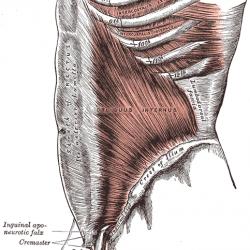Few Specific Tactics To Deal With Unmanageable Medical Debt To Prevent Health Issues
After undergoing any medical treatment you will now have to face the burden of paying your medical bills. If you do not then not only the healthcare provider will send it to the collections but the effects and collection calls will affect your health once again as well. Though having debt is very common today but having too much of it of any kind is not good for your physical as well as financial health.
Falling behind your bills and defaulting will affect your credibility and will increase the amount outstanding due to the interest accrued. To avoid the spiraling debt trap you will have to prevent your debt from reaching unmanageable proportions. This will help you to avoid several complications in your social, personal, mental and professional life in turn as well.
Bad effects of unpaid medical bills
After coming out from a health issue after treatment will cause more serious issues if you leave your medical bills unpaid. Studies show that most people within the age group of 25 to 30 years have a high debt to asset ratio. It is also found that they are more susceptible to poorer health conditions. People of middle age group have more medical needs as compared to the senior citizens or children which is why they tend to borrow more than required and fall into the debt trap. The effects debts can have in your health include:
- Rise in your blood pressure: This will in turn increase the chances of heart diseases and stroke. All these are the results of unavailability of cash to repay your medical bills on time. It leads to constant stress and fear which is the salient feature of dealing with high and unmanageable debt.
- Signs of anxiety: There are several studies that show people having and dealing with their high medical bills feel the effects of stress and anxiety about 12% more than any average person. Unmanageable debts have the same effect on the younger generation, middle aged group and even the senior citizens.
- It leads to depression: You will also feel depressed when you have to take on collection calls due to the unpaid medical bills. This will result in deterioration of mental health. It is seen that people above 50 years of age face such depression when they have unpaid medical bills or credit card debts.
- Chronic diseases: Anxiety and depression will lead to serious chronic diseases and will also affect your sleep if not attended for long.
- Immunity: Unpaid debts will lower the immunity level which will in turn make you vulnerable to various diseases. You will lose the ability to fight off infections and also fall ill frequently. In turn, it will increase your medical expenses further having to visit your doctor more than often.
- Skip medical treatment: Medical and health care is something that you cannot avoid and it is certainly not a one-time affair. You will need to visit your physician for several reasons on a regular basis. However, when you have medical bills yet to pay off, you will skip your regular checkups and health care making you more vulnerable to medical conditions increasing your medical bills further.
- Other effects: When you face acute stress and anxiety it can lead to headaches and migraine, back pain and muscle tension, digestive tract problems and ulcers.
Relations will get strained, behaviors and attitude will change and you will experience mood swipes. It might affect your professional career as well.
Tips to manage medical bills
All of the above issues can only be resolved when you keep your medical bills form rising and becoming unmanageable. This will also prevent your financial status from becoming crippled. Fortunately there are several ways to deal with huge medical debt before it lands you into bankruptcy.
- Do not ever ignore your medical bill as that will not help you even at the least. Doctors and the medical providers will handle your account for only a few months and then send it to the collection agency. You will start getting those disturbing collection calls and if you still do not pay it will hurt your credit report to affect your borrowing ability adversely.
- Check your bill as soon as you receive as there is a practice to inflate medical bills by adding things that you never undertook. Check for the tests and treatments that you have taken to identify any errors or omissions. Be proactive to clear out any discrepancies. Also make sure that the bill includes only that amount that is left unpaid after your insurance carrier, if any have paid according to the terms in your insurance policy.
- Always have an emergency fund to deal with your medical bills. Create a savings account and keep it untouched if you do not have any medical emergencies.
- Inform the health care facility if you are not making the full payment and make arrangements fast to pay the balance amount.
- You may have to make some curtailments in your monthly expenses for this purpose, pay the outstanding amount by your credit card, or avail some debt relief programs to ease up your finance but make sure you know the debt relief details precisely before opting for it.
- You can also file for bankruptcy if you qualify but keep this as your last straw as this will reflect and affect your credit history for ten years.
- Lastly, you may file a lawsuit if you do not find any reasonable solution to the problem. However, it will depend on the court to decide whether or not you will get a complete waiver or have to pay the amount over a specific time limit which usually ranges from three to five years.
Whatever method you choose or feel comfortable with, it is recommended that you consult with a reliable credit counselor in your area. This will prevent you from taking any decision that will further affect your credit and financial status. They are experts to design a better and more effective plan to regain control of your finance.
More to Read:
Previous Posts:







